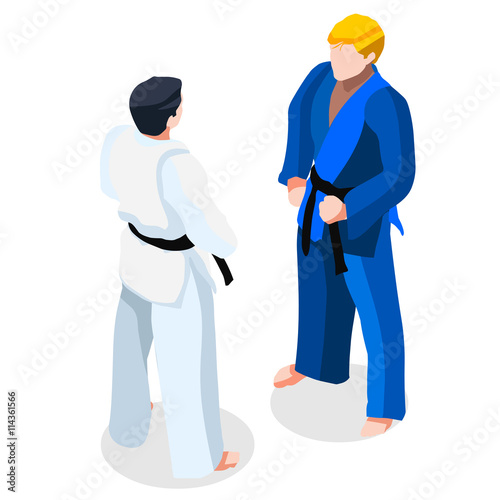Checking Out The Rich Heritage And Spiritual Dimension Of Martial Arts: A Comprehensive Examination
Checking Out The Rich Heritage And Spiritual Dimension Of Martial Arts: A Comprehensive Examination
Blog Article
Published By-Moesgaard Friedman
Enter the old globe where martial arts were born out of necessity in varied areas. Cultures crafted special combating styles intertwined with historic contexts. Strategies developed over centuries via dedicated practice and cultural exchanges. Today, modern-day martial arts mix conventional aspects for maximum efficiency. Philosophically, martial arts highlight self-control, self-improvement, and consistency. Respect, humility, and equilibrium are fundamental principles assisting practitioners towards growth and durability. Explore the midsts of this rich history and ideology to discover the extensive influences forming this long-lasting technique.
Beginnings of Martial Arts
Fighting style originated in numerous regions around the globe, progressing as useful battle systems to resist hazards. These old combating designs were created out of need, with each society crafting techniques fit to their unique environments and difficulties. From the grappling arts of Jujutsu in Japan to the striking methods of Kung Fu in China, martial arts were deeply linked with the historical, social, and cultural fabric of their respective cultures.
In Japan, the samurai course refined martial arts like Kenjutsu, the art of the sword, which later developed right into the more promoted form of Kendo. At the same time, in Brazil, Capoeira became a blend of dancing and battle, produced by enslaved Africans as a way to withstand fascism. Each martial art brings with it an abundant background and philosophy, showing the values and ideas of individuals who exercised them.
As you delve into the beginnings of martial arts, you discover a tapestry of human resourcefulness, durability, and the stubborn spirit of warriors throughout time.
Advancement of Strategies
Through centuries of practice and improvement, fight methods within various martial arts have undergone an extensive advancement. From ancient designs like Kung Fu and Karate to more modern-day self-controls such as Brazilian Jiu-Jitsu and Krav Maga, the evolution of methods has been driven by a combination of cultural influences, practical applications, and technical innovations.
One significant facet of this advancement is the cross-pollination of methods in between different martial arts. For https://www.thecourier.co.uk/fp/past-times/3516277/martial-arts-in-dundee/ , techniques from typical Japanese Jiu-Jitsu were integrated into the production of Judo by Jigoro Kano in the late 19th century. https://martial-arts-near-me-for33210.sharebyblog.com/27579128/grow-your-internal-equilibrium-by-immersing-yourself-in-the-deep-wisdom-of-a-martial-arts-college of styles has brought about the development of crossbreed martial arts like Mixed Martial Arts (MIXED MARTIAL ARTS), which incorporate aspects of striking, grappling, and submission methods.
Furthermore, https://martial-arts-instructor-k87765.snack-blog.com/27608779/boost-your-martial-arts-training-by-including-vital-nourishment-and-health-and-fitness-advice-to-improve-your-skills-and-performance of strategies has been formed by the enhancing emphasis on performance and effectiveness in battle. Experts have continually looked for to refine their strategies through rigorous training, experimentation, and competitors, bring about the growth of highly specialized and effective fighting styles. Overall, the evolution of strategies in martial arts reflects the vibrant nature of fight and the ongoing mission for enhancement and advancement.
Philosophical Foundations
Checking out the underlying philosophical principles of martial arts offers understanding into their core worths and directing beliefs. At the heart of lots of martial arts disciplines is the principle of discipline itself. By educating your body and mind to function as one natural device, you grow self-control that extends beyond the dojo or gym right into daily life. This technique incorporates respect, humility, and self-discipline, shaping not simply your physical abilities yet likewise your character.
An additional essential thoughtful foundation in martial arts is the idea of continuous self-improvement. The journey of grasping a martial art is continuous, with practitioners regularly making every effort to better themselves, both physically and mentally. This focus on growth promotes resilience, perseverance, and a development frame of mind that can be applied to all aspects of life.
In addition, martial arts highlight the significance of consistency and equilibrium. Methods are created to utilize an opponent's energy against them, highlighting the concept of yielding and rerouting pressure rather than fulfilling it head-on. This viewpoint reaches social partnerships, advertising relaxed resolutions and mutual understanding. By accepting these thoughtful foundations, martial artists not only boost their combat skills but also cultivate a lifestyle centered on individual development, respect, and harmony.
Final thought
In conclusion, the background and approach of martial arts provide an abundant tapestry of practice, discipline, and self-improvement.
Take for example the story of Bruce Lee, that transformed martial arts by mixing different designs and viewpoints to create his own distinct kind of Jeet Kune Do.
Via dedication and development, martial artists remain to press limits and influence others to reach their complete potential both in battle and in life.
